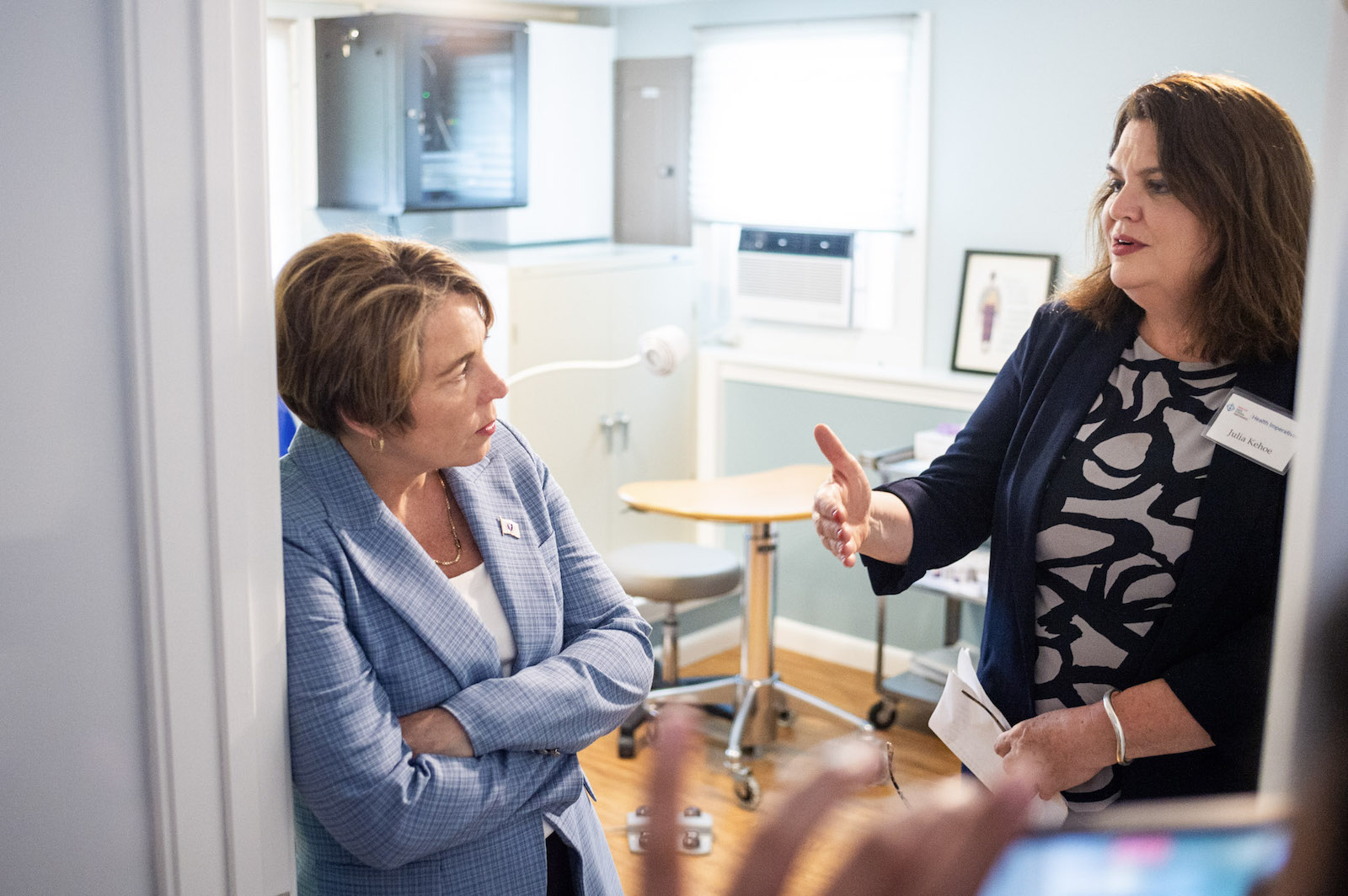Gov. Maura Healey joined State Rep. Dylan Fernandes and State Sen. Julian Cyr on the Island Thursday for her first official visit since her gubernatorial election.
During a tour she met with various Island officials and stakeholders concerning key issues the Island faces. The governor attended an affordable housing development round-table at Kuehn’s Way, discussed the ever-growing issue of food insecurity at the Island Food Pantry, and met with Health Imperatives about reproductive healthcare.
The visit took place only days before the one-year anniversary of the Supreme Court’s Dobbs decision that overturned Roe v. Wade — a decision she called “terrible” and “misguided.”
The meeting with Health Imperatives highlighted a grant the organization received from the Department of Public Health that will make medical abortions directly available on-Island for the first time. After July 3, southeastern Massachusetts will no longer be considered an abortion desert, Governor Healey said.
“I want to be really clear that whatever we need to do as a state to support reproductive health care, to support health care — which I believe is a human right — we are going to do,” Governor Healey said to attendees.
Yesterday, the Healey-Driscoll Administration also released its Fiscal Year 2024-2028 Capital Investment Plan, which, according to a press release from the administration, “invests more than $14 billion over five years to build a more affordable, competitive and equitable future for Massachusetts.”
The plan aims to provide funding for road and bridge infrastructure and advance climate, economic development and housing goals, which includes a new $97 million HousingWorks program.
“We have funding for housing in really historic amounts,” Governor Healey said. “This is going to be hundreds and hundreds of millions of dollars that we’re going to use throughout Massachusetts, including on Martha’s Vineyard, to make sure that we are rehabbing and renovating existing housing to create more housing units, that we are providing financing and help to communities and to developers to create more housing.”
Governor Healey attended a roundtable discussion on developing affordable housing with representatives from the Island Housing Trust, chamber of commerce, Martha’s Vineyard Hospital, Martha’s Vineyard Commission and the Coalition to Create the Martha’s Vineyard Housing Bank.
The round-table was closed to the press, but Phillipe Jordi, executive director of the Island Housing Trust, said later that the conversation revolved around the local need for housing to support middle-class Islanders, from those working in the hospital to the school system.
“We need to have our own source of funding that can be used in ways that fit the solutions that we’re looking for, that don’t necessarily fit with the larger urban or suburban solutions that you typically see,” Mr. Jordi said on a phone conversation with the Gazette. “If we keep that, like the Community Preservation Act, more local, we’d have that discretion and be able to utilize funding that is more in line with what solutions we believe are the best for our communities here on the Island. It’s going to make a huge difference.”
Though Governor Healey did not indicate whether she would support the Vineyard Housing Bank Bill, she said the group discussed the transfer fee at length.
“I’ve supported local communities having those options,” she said. “But I was also struck by what has been the rising cost of housing the last few years given inflation. It just leaves me all the more committed to making sure that we do everything we can to create more housing here in the state.”
The governor ended her day at the Island Food Pantry, which has seen the need for its services double since the start of the Covid pandemic.
“It’s always good to hear directly from people, the latest on things,” Governor Healey said. “It just leaves me all the more committed to doing some of the things we’ve started doing with our new administration.”





Comments
Comment policy »